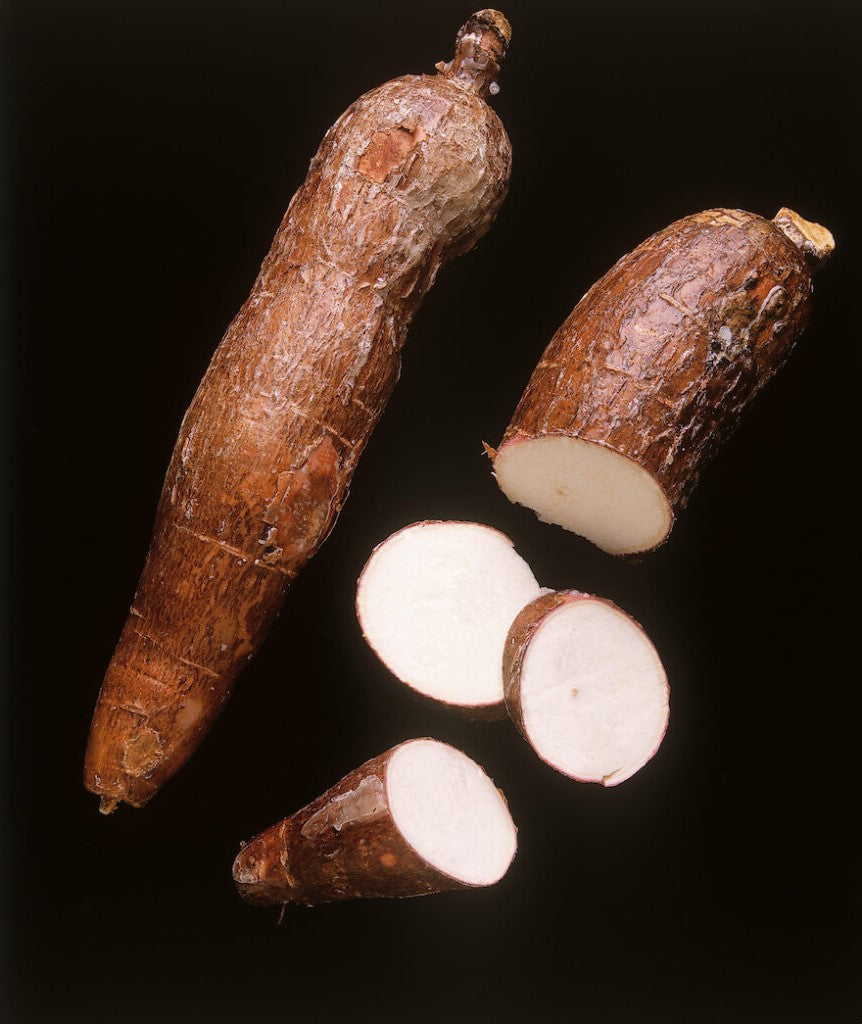What is Pre-biotic Tapioca Fiber?
Resistant dextrin, also commonly called soluble vegetable fiber or pre-biotic vegetable fiber, is a keto-friendly sweetener that's commonly used in your favorite products. KetoGoods™ Pre-biotic Tapioca Fiber is made from non-GMO tapioca syrup. Resistant dextrin is not broken down by your body after consumption, leaving you with a tasty source of dietary fiber, with none of the guilt!
There has been confusion surrounding the use of "soluble vegetable fiber". Brands commonly mislabel IMOs as soluble vegetable fiber, which misleads informed customers who know that IMO is NOT keto-friendly.
Quest was one of the first companies to use IMO syrup as an ingredient, and at the time, it was revolutionary. Finally, there was a protein bar that could be sweet, high in fiber, and healthy. Eventually, companies like FiberYum and Vitafiber began selling the ingredient itself to educated consumers who wanted to make their own protein bars, candy and baked goods. It was also commonly used as a dietary fiber supplement. In 2019, some research came out that found IMO to be mostly sugar, and not fiber. As of January 1, 2021, all brands who use IMO in their products MUST label it as a sugar (4 cal/g, 1g net carbs per gram). Now, if you look at ingredient panels for protein bars, you'll see some form of FiberYum syrup instead!
Why use KetoGoods Pre-biotic Tapioca Fiber?
KetoGoods™ offers the ideal replacement for IMO in its resistant dextrin/soluble vegetable fiber. The FDA recognizes resistant dextrin as a functional soluble fiber regardless of the source (corn, cassava/tapioca, etc.) It contains roughly 1.4cal/g, and no net carbs (per gram)!
As shown in the chart below, the effects of resistant dextrin/soluble vegetable fiber on blood glucose are negligible when compared to IMO and placebo. More details on the study under sources at the bottom of this page.

Note: Soluble vegetable fiber = Prebiotic tapioca fiber
Keto + Paleo Friendly
Since tapioca fiber has no effect on blood glucose, it will not take you out of ketosis when you consume it. It's made using a natural enzymatic process performed on cassava root, and so it's paleo friendly too. Keto dieters often find themselves lacking in fiber consumptions, causing problems with bowel regularity. One serving of prebiotic tapioca fiber contains nearly 20% of the recommended dietary fiber intake.
Insulin Resistance
Another benefit of tapioca fiber is that it reduces insulin sensitivity. If consumed alongside some other form of carbohydrate, your body will have a lower glycemic reaction than had you consumed the carbohydrate alone.
What is a pre-biotic?
Resistant dextrin is also considered a pre-biotic. Pre-biotics are non-digestible foods that promote the growth of healthy microorganisms in the intestines. A healthy gut microbiome can lead to increased metabolism, boost your energy levels, and even promote mental clarity! Many keto dieters may find that their digestive system gets backed up, especially those who consume significant quantities of dairy and cheese. KetoGoods offers the ideal source of pre-biotic fiber to ensure your body's regularity.
Excellent fiber supplement
Although our products are generally geared toward keto consumers, tapioca fiber is excellent for anyone who's looking to boost their fiber intake. Since the FDA considers it to be a functional soluble dietary fiber, you can use it as such. It's much cheaper than products that are marketed specifically as dietary fiber supplements, and performs the same function. Easily add it to any drink to help your body with digestion and regularity.
You can find it all over the place
If you keep your eyes open, you'll notice that your favorite keto bars, baked goods, and other products have switched from IMO to resistant dextrin. KetoGoods offers the best resistant dextrin on the market, so you can make your own recipes. Quest bar, Lakanto, Atlas bar, and BHU are just a few examples of the hundreds of companies using this product in their foods. If you want to start making your own keto protein bars, or other goods, this is a great place to start!
Who should use tapioca fiber?
Keto and low carb dieters:
Use as a replacement for honey, high fructose corn syrup, isomaltooligosaccharides, maple syrup and more as a binder in your no bake recipes. Also perfect for use to help your body efficiently digest meat and dairy that is popularly consumed on low carb diets.
Everyday consumers:
Does your doctor recommend that you boost your fiber intake? Are you tired of the ridiculous prices that supplement companies charge for fiber supplements? Whatever reason you're searching for a flexible source of dietary fiber, tapioca fiber is perfect for you. It's cheaper than almost every fiber supplement you see in the store (sometimes by more than 75%!). Beyond helping with regularity, its prebiotic function helps your stomach to rebuild a healthy microbiome.
Older individuals:
Many older individuals find themselves struggling to use the bathroom regularly. Tapioca fiber is a healthy way to assist! It can be put in just about anything, as it's nearly flavorless and dissolves quickly in water. Health-conscious and educated consumers will love it for its prebiotic benefits.
Why KetoGoods?
We are the only company offering this product direct to the consumer. Our products are tested rigorously to ensure that they do not impact blood glucose. We package ingredients ourselves, in the United States, using sustainable packaging and processes to ensure quality. Our prebiotic tapioca fiber is also more than 70% cheaper than comparable dietary fiber supplements, and functions as a good ingredient as well!
Buy KetoGoods Prebiotic Tapioca Fiber Syrup
More questions? Don't hesitate to comment below.
Small business or influencer? Contact us for free samples.
Sources:
- Lowery RP, Wilson JM, Barninger A, et al. The effects of soluble corn fibre and isomaltooligosacharides on blood glucose, insulin, digestion and fermentation in healthy young males and females. J. insul. resist. 2018;3(1), a32. https://doi.org/10.4102/jir.v3i1.32


